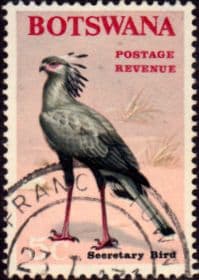Botswana: A Rising Star in Africa’s Economy

Introduction
Botswana, located in Southern Africa, has been gaining attention for its remarkable economic growth and political stability. Known for its significant diamond resources and wildlife tourism, Botswana presents a unique case study in development within the continent. As it continues to evolve, understanding the factors behind its success is vital for both investors and those interested in African geopolitics.
The Economic Landscape
Since gaining independence from Britain in 1966, Botswana has transformed from one of the poorest countries to a middle-income nation, largely attributed to its diamond mining sector. According to the World Bank, local diamond production and effective governance have played pivotal roles in driving the economy, which is projected to grow by 4.2% in 2023. This growth is crucial not only for domestic development but also for bolstering regional economic stability.
Tourism and Its Impact
Botswana is renowned for its stunning natural landscapes, including the Okavango Delta, a UNESCO World Heritage site, and Chobe National Park, known for its rich wildlife. Tourism contributes significantly to the nation’s GDP and has been aggressively promoted as a sustainable development strategy. The recent increase in eco-tourism initiatives highlights the government’s commitment to preserving its natural resources while fostering economic growth. Post-COVID-19 recovery has seen a gradual return of tourists, vital for the sector’s rebound.
Political Stability and Governance
One of Botswana’s defining characteristics is its stable democratic political system, which has remained intact since its independence. This political backdrop has enabled sound fiscal policies that encourage foreign investment. Recent global developments, including geopolitical tensions affecting trade routes, have further underscored the advantages of Botswana’s strategic location in the region.
Challenges Ahead
Despite its successes, Botswana faces challenges such as high unemployment rates, particularly among the youth, and a pressing need for economic diversification beyond diamonds. Moreover, the ongoing effects of climate change threaten both agriculture and tourism, making resilience strategies critical for future sustainability.
Conclusion
Botswana stands out as an inspiring model for economic development in Africa. Its blend of natural resources, political stability, and commitment to sustainable tourism represents a promising future. However, the nation must navigate existing challenges to maintain its growth trajectory. For investors and global observers, Botswana remains a significant player on the African stage, potentially paving the way for new opportunities as it continues its development journey.









